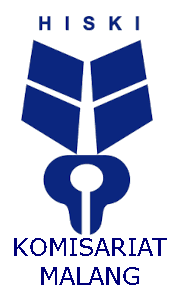KAJIAN ANTROPOLINGUSITIK TRADISI OJHUNG DI DESA BUGEMAN KECAMATAN KENDIT KABUPATEN SITUBONDO
Abstract
This study seeks to identify the ojhung tradition in Bugeman Village, Kendit District, Situbondo Regency, based on anthropological elements. The emphasis of this research is based on the study of language, culture, and the values contained therein. This study was designed using a qualitative approach using ethnographic methods with an anthropolinguistic design. Sources of research data are informants as resource persons as many as three people who are classified based on professional criteria and social status. The data of this research are the oral utterances of the informants as they are which inform the ojhung tradition. The collection of research data was carried out by observation and interview techniques. The results of this study are that ojhung is a procession for the people of Bugeman Village to ask for safety, rain, abundant harvests, and repel reinforcements. The Bugeman community is an agrarian society with the Madurese language as their daily language so that the term ojhung itself is a term derived from the Madurese language. In addition, there are values related to culture, namely values related to God, values related to and oriented to nature, values related to and oriented to time, values related to and activity oriented, and values related to and oriented to human relations.
Copyright (c) 2024 Jurnal Pembelajaran Sastra

This work is licensed under a Creative Commons Attribution-NonCommercial-NoDerivatives 4.0 International License.
The Authors submitting a manuscript do so on the understanding that if accepted for publication, copyright of the article shall be assigned to Jurnal Pembelajaran Sastra (Journal of Literary Education) as publisher of the journal, and the author also holds the copyright without restriction.
Copyright encompasses exclusive rights to reproduce and deliver the article in all form and media, including reprints, photographs, microfilms and any other similar reproductions, as well as translations. The reproduction of any part of this journal, its storage in databases and its transmission by any form or media, such as electronic, electrostatic and mechanical copies, photocopies, recordings, magnetic media, etc. , are allowed with a written permission from Jurnal Pembelajaran Sastra (Journal of Literary Education).
Jurnal Pembelajaran Sastra (Journal of Literary Education), the Editors and the Advisory International Editorial Board make every effort to ensure that no wrong or misleading data, opinions or statements be published in the journal. In any way, the contents of the articles and advertisements published in the Jurnal Pembelajaran Sastra (Journal of Literary Education) are sole and exclusive responsibility of their respective authors and advertisers.








